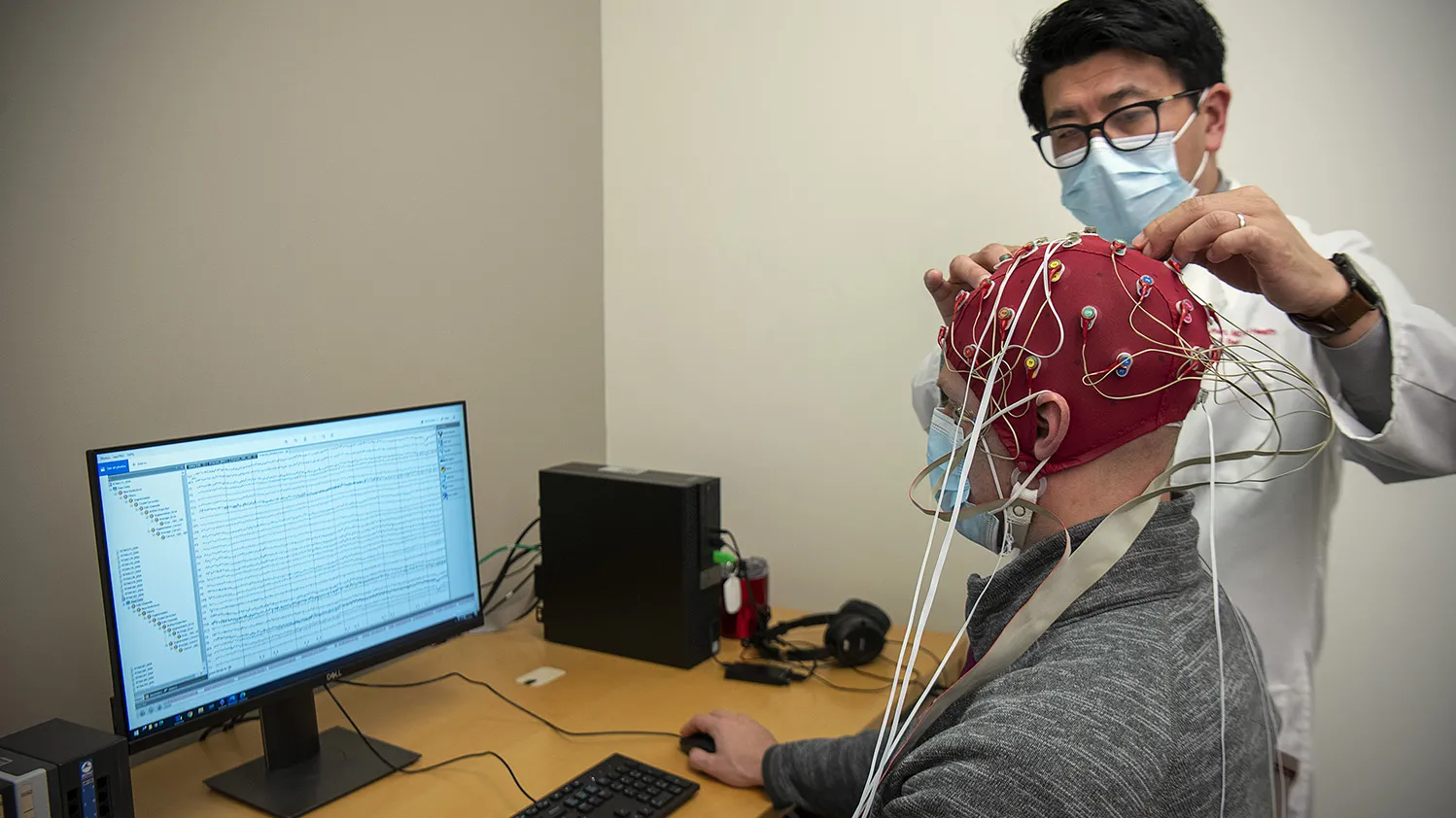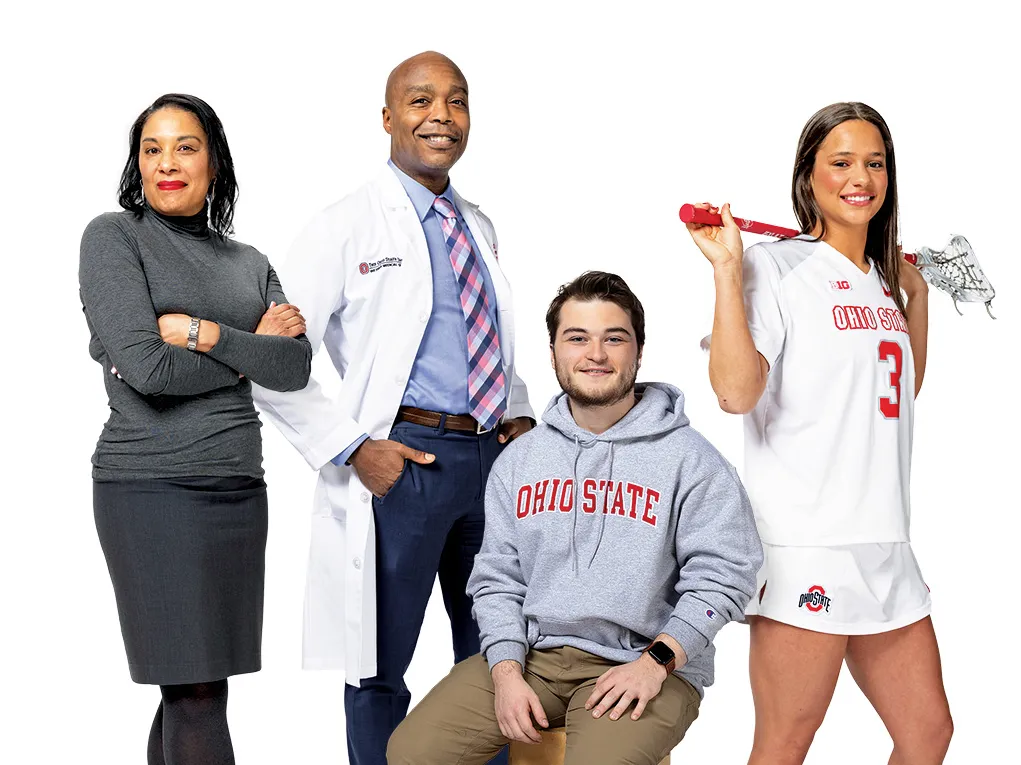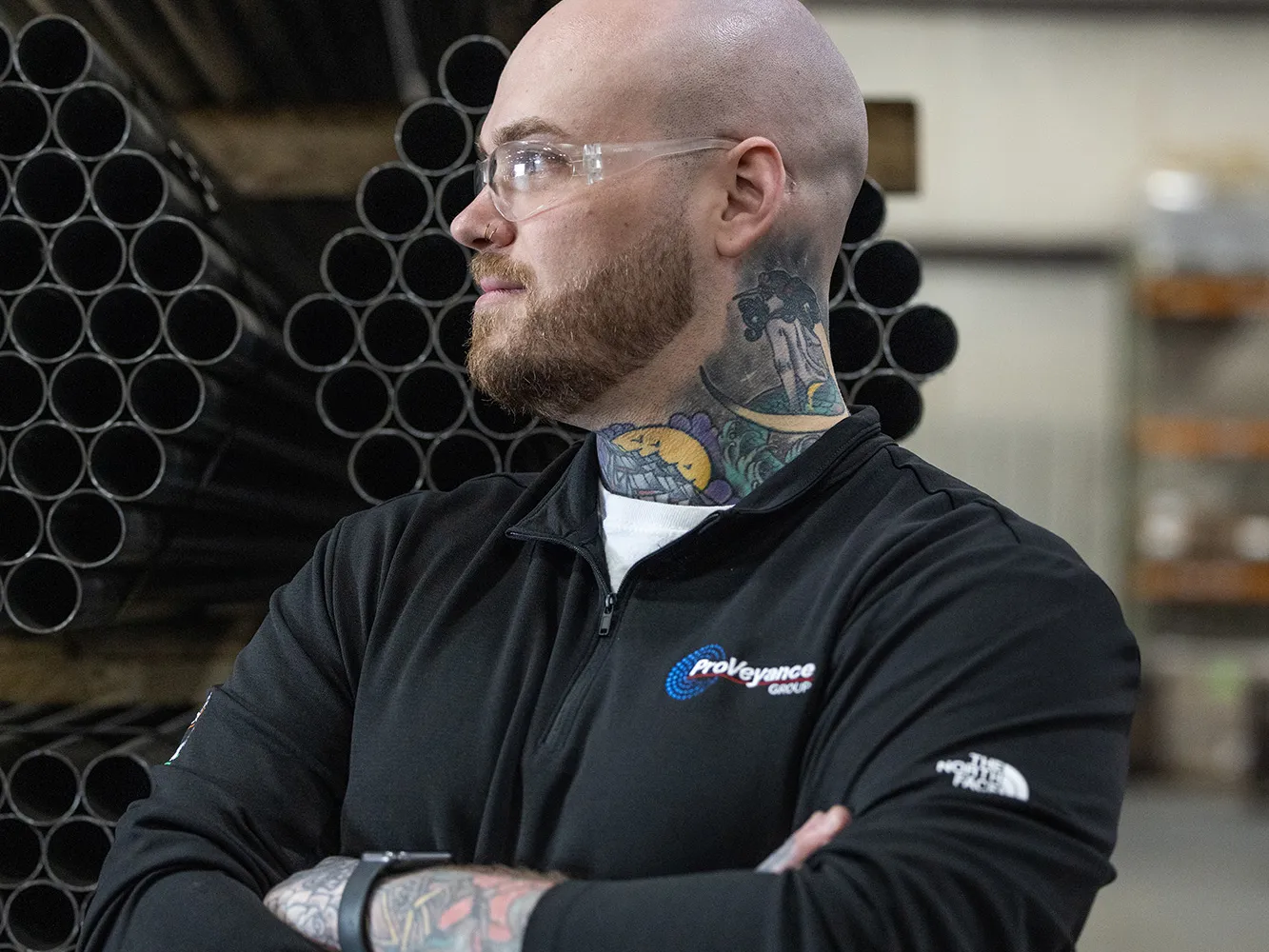Peers consider Dr. K. Luan Phan to be at the forefront of research about mental health issues such as anxiety, depression and post-traumatic stress disorder, as well as their connection with drug and alcohol addiction.
Phan’s stellar reputation, however, encases a core humbleness that infuses his work as professor and chair of the Department of Psychiatry and Behavioral Health in the College of Medicine and chief of psychiatry services for the Wexner Medical Center. “Mental health is a complex and challenging issue,” he says. “There’s a lot we don’t know and a lot we should know.”
That search brought Phan to Ohio State in 2019 from the University of Illinois-Chicago. Today, he’s leading several projects, highlighted by the State of Ohio Adversity and Resilience (SOAR) Study, an ambitious statewide project launched in 2024 funded by the state Department of Mental Health and Addiction Services. “We’re beginning to address fundamental questions,” Phan says. “Why do we get sick? Who gets sick? How do we get sick? When do we get sick?”
Phan’s quest was boosted by a $10.15 million gift from the Jay & Jeanie Schottenstein Family Foundation, which in 2021 created the Jeffrey Schottenstein Program for Resilience. Named after their son, the program runs in partnership with Ohio State’s Department of Psychiatry and Behavioral Health and its Young Adult Program.
As the Jeffrey Schottenstein Endowed Chair of Psychiatry and Resilience, Phan is using new approaches to help alleviate a crisis. The 2023 Mental Health in America report said that more than 2.1 million Ohioans—nearly 25 percent of the state’s adults—are living with mental health illness. Learning could lead to recovery and resilience, which are topics that elicit their own questions. In addressing those, Phan and his team of researchers see opportunities for new models of care.
“For us, resilience is about not only bouncing back from adversity and stress,” Phan says. “It’s about learning from that adversity and stress. How can I use this? How can I adapt? And then how can I even thrive after them in the aftermath of difficult and challenging times? How can I become even stronger? How can I grow?”
By learning more, Phan aims to bring about new preventive measures, new treatments—through medicine and behavioral therapy—and lessen the guilt and shame that he says too many patients feel about their condition. The Schottensteins’ donation is supporting a campaign to fight against stigma and increasing access to care for students on Ohio State’s campus. Phan says he’s also using the funding to continue research into the brain “because mental illnesses are diseases of the brain, which control how we feel, how we think, how we act.”
The SOAR Study, initially funded for two years with a $20 million state grant, is representative of Phan’s broad mission. Phan and his partners in the project are using an innovative approach that differs from the traditional strategy of mental health research, which is usually conducted in clinical settings.
SOAR is using two ways to study the brain, biology, psychology and social setting of volunteer Ohioans and their families across generations. Phan’s team of researchers is working along with the Wexner Medical Center, the College of Medicine and researchers and experts from several Ohio public universities, academic medical centers, regional hospital systems and community organizations.
So far, nearly 15,000 people, from all of the state’s 88 counties, have already responded to a Wellness Discovery Survey, and more than 900 families have participated in a Brain Health Study that has included sending mobile medical/brain imaging units to rural areas.
“This is about bringing science to the people. It’s meeting them where they are at, where they live, where they work, where they play,” Phan says. “By sharing their stories, they’re allowing us to communicate, bond and support one another. It engenders a collective community working together.”
Phan says SOAR’s parallel and connected investigations will provide integral analysis to determine root causes of mental health illness and substance abuse. His hope is that SOAR can continue beyond 2025 and scale up. “We actually can become a beacon of light, hope and action,” he says, “for not only Ohio but for the country and the world.”

Why we give: Jeanie & Jay Schottenstein
Jeanie ’78: “We became motivated to do this because we are aware that in philanthropy, funds dedicated to behavioral health are difficult to come by, and the shame and stigma of putting your name to something in that direction is always there. We felt strongly that we could get behind this and say we are identifying a very important need, and we’re standing strong. We hope people will follow.”
Jay: “We’re excited that the university could be the front-runner of this. Our involvement is not just to have a program, but to have a model that could be taken and used all over the United States, at other college campuses, too. We’ve always taken great pride in the university. This is not just a university where people just go. This is a university that leads.”
Jeanie: “Columbus is our community. This is where our home is, and we feel very strongly about supporting the community and Ohio State. And I think a very, very important reason why we felt that this was an appropriate gift is Dr. Phan. We have tremendous confidence that he will take this to the level it deserves and reach as many people as possible.”
Illustrations by Michael Hoeweler






